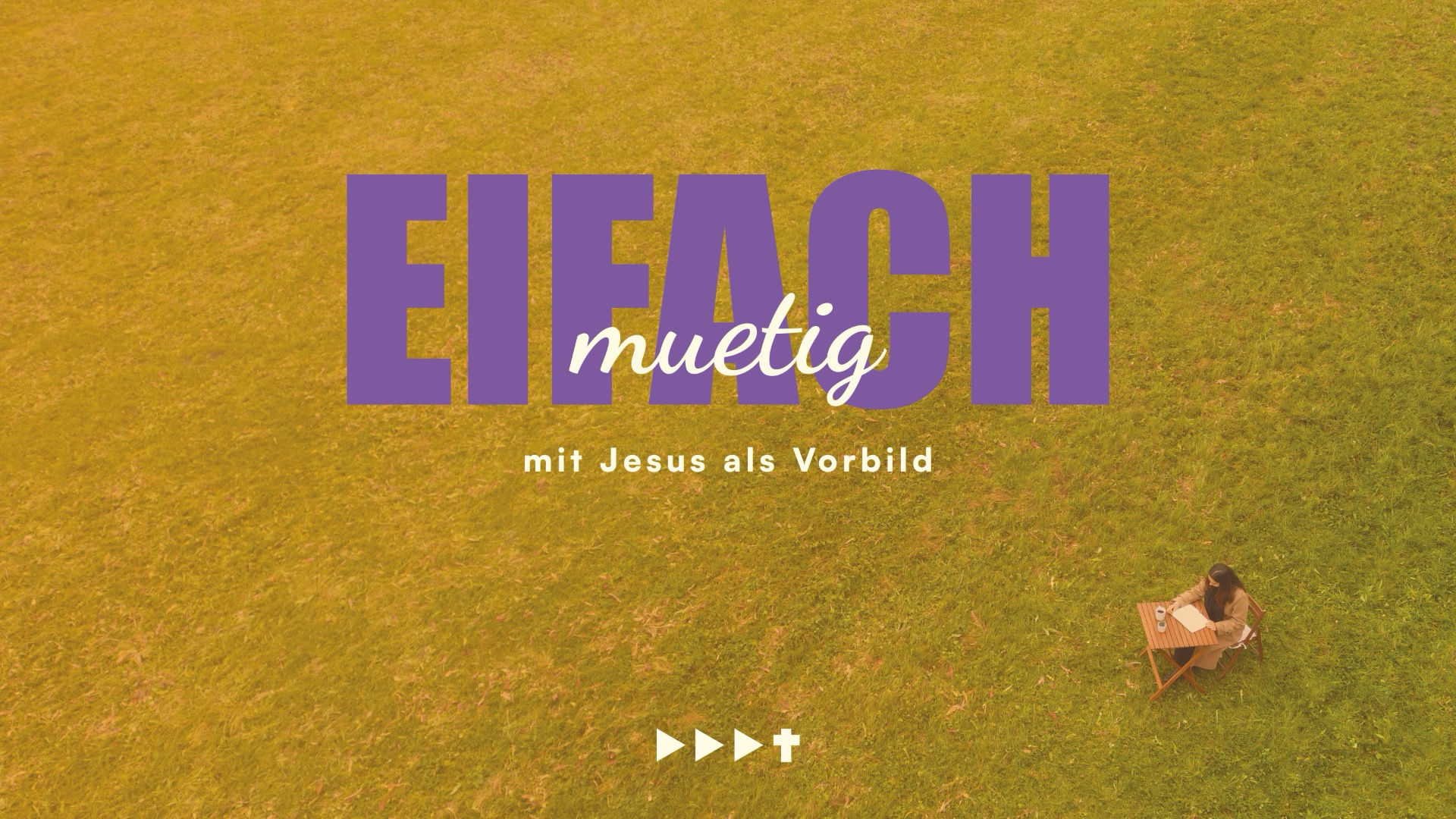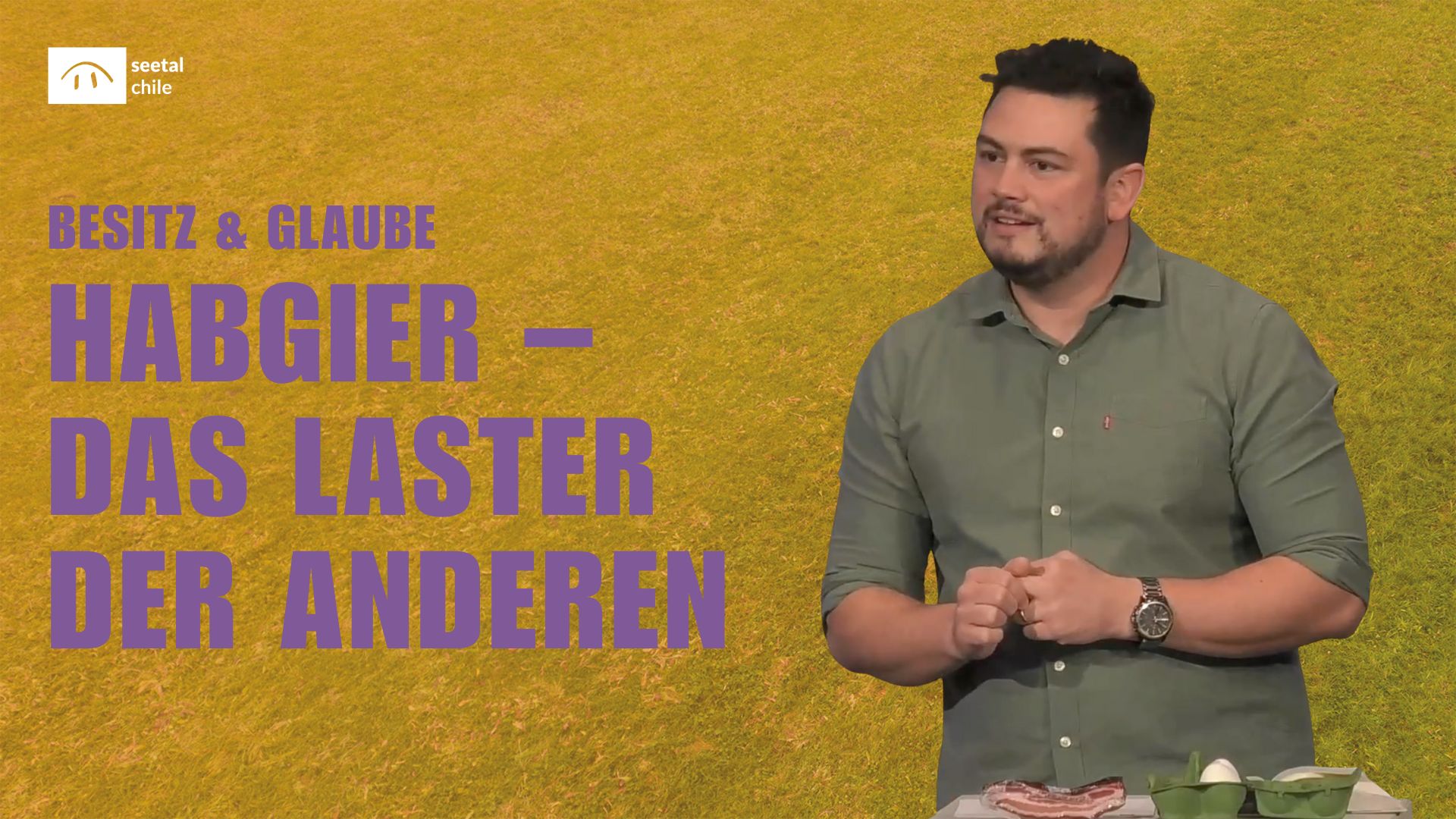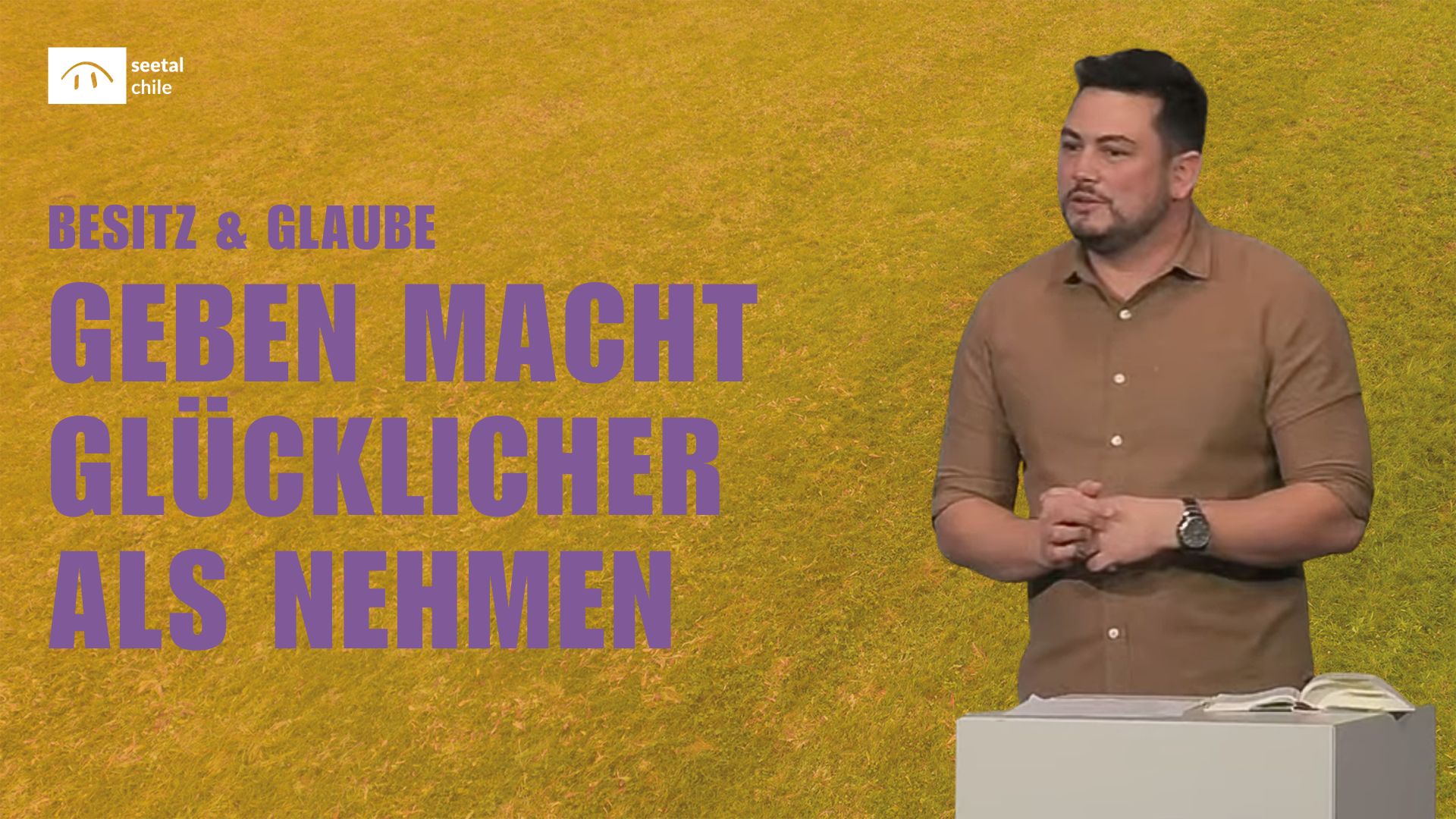Property & Faith | Living free – collecting treasures in heaven
Series: EIFACH muetig – with Jesus as a role model | Bible text: Matthew 6:19–34
The aim of all considerations on the subject of possessions and faith is that they lead us closer to God’s kingdom. All of Jesus» criticism of possessions is fundamentally a criticism of our distance from God. The more important Jesus becomes to us, the less important earthly things are. That is why followers of Jesus should store up treasures in heaven. This treasure is shown in my dependence on him. Therefore, the treasure is already accessible here and now, in that I expect my security and fulfilment from Jesus Christ.
Any preoccupation with the subject of possessions and faith that focuses too much on possessions falls short. The point of orientation for our faith is not our possessions, but Jesus Christ. In everything Jesus says, he is more concerned with criticising the remoteness from God, combined with an invitation into his kingdom.
The kingdom of God as the goal
This morning we want to talk about storing up treasures in heaven. What do I mean by heaven? It is the kingdom of God that began on this earth with Jesus Christ (present) and that will unfold in its finality (eschatological). It is already here and not just a consolation for later! In the Bible it is referred to as the kingdom of heaven or simply the kingdom of God. «Make the kingdom of God your most important concern, live in God’s righteousness and he will give you everything you need» (Matthew 6:33 NLB). Being obedient to God and following him comes first. «Therefore do not worry about tomorrow, for each day brings its own burdens. Today’s worries are enough for today» (Matthew 6:34 NLB). Either this statement is a contemptuous joke on the poor and miserable who have no option. Or it is a unique proclamation of the gospel of freedom for the followers of Jesus. «God did not even spare his own Son, but gave him for us all. And if God gave us Christ, will he not also give us everything else with him?» (Romans 8:32 NLB).
Therefore, before we worry, we should make God’s kingdom our most important thing. Because if Jesus has been given to us by God, then with him we really have been given everything! Jesus once sent his disciples out without taking anything with them. Later he asked them if they lacked anything. Their answer: No (Luke 22:35). How could someone who is sure of his fellowship with Jesus Christ in persecution and danger lack anything?
«For where your treasure is, there is your heart» (Matthew 6:21 LUT). The heart follows the treasure like the sunflower follows the sun. But how do I find out whether I am using my possessions or whether they are a treasure to which my heart is attached? By reversing the sentence: What your heart is attached to is your treasure! This can also be very small. Because it is not only materially valuable things that can capture our hearts. It is estimated that every person in the West owns 10,000 things – in developing countries often only a few hundred items. Our hearts can also be attached to things with an intangible value: our children’s first clothes, our first love letter, a collection of notebooks or a family heirloom.
The treasures in the world are only treasures when our hearts are attached to them. They are things that I consider to be the best. The nasty thing is that possessions pretend to give the human heart security and peace of mind. But in truth, that’s what we worry about. Worries create treasures, and treasures in turn create more worries. «We want to become carefree through worry; but in truth, the opposite is true. The fetters that bind us to goods, that hold goods fast, are themselves – worries» (Dietrich Bonhoeffer). Our worries are always focussed on tomorrow. But what we have is for today! We cannot «make provisions»! Because the world is not in our hands. We can only trust God.
Collecting treasures in heaven
Jesus invites us to collect treasures. A treasure is something that promises me security and fulfilment in an uncertain world. If my treasure is in heaven, my interest will also revolve around it. If it is on earth, then my interest will revolve around it. This can be anything – and if I call my wife «sweetheart», this is already one of many possibilities.
Jesus called people to reach other people, not to collect treasures on earth. So what are treasures in heaven? What we have with God is our treasure – not in the future, but now. It is his grace towards us. Our hearts can already be anchored in this heavenly treasure. If this is the case, then earthly things can be used and let go of with a different ease. But it is also the power that overcomes evil. These are the fruits of the Holy Spirit (Galatians 5:22–23). It is the fruits of the suffering of Jesus Christ, which are a share in the death and resurrection of Jesus Christ and in eternal life. It is the praise of God that is bestowed upon us: «[…] And then God will praise everyone as he deserves» (1 Corinthians 4:5 NLB). In the end, it is all that God has. So in the parable of the Prodigal Son, the father says to the son who stayed at home»[…] Look, my dear son, you and I are very close, and everything I have is yours» (Luke 15:31 NLB). Here and now, but also for eternity.
But how do I collect these treasures in heaven? Ultimately, the treasure in heaven is Jesus himself; therefore, I collect it by trusting in him alone! This is shown in my faithfulness to God by managing my possessions well and caring for those who are my neighbours. However, this does not mean my family, but my neighbour in need. And by loving my enemies. Basically, I always store up treasure in heaven when I consciously put the will of God above my own will. However, the treasure is not the deed itself, but the orientation towards Jesus, which then manifests itself in a change in behaviour. The treasure in heaven can therefore be experienced here and now because I make my security and fulfilment dependent on Jesus Christ. Living freely in the context of «possessions & faith» means taking responsibility, making wise decisions, but not hanging my heart on them. Because every earthly treasure will be taken from you! «So we are not fixated on the hard things we see now, but look ahead to the things we have not yet seen. For the sorrows we see before us now will soon be over, but the joy we have not yet seen will last forever» (2 Corinthians 4:18 NLB).
Heart in heaven
So we should be in heaven with our hearts. This means that we deal with our things as if we didn’t have them. It’s about not attaching our heart to it. «Do not set your heart on money and be content with what you have. For God has said: I will never leave you nor forsake you» (Hebrews 13:5 NLB). Many things take me captive, so I limit myself. Again from last Sunday: greed is the desire for more, coupled with dissatisfaction with what I have.
I would now like to mention various points that can help to give the heart a framework. It is important that Jesus wants to lead us into freedom. At the end of the sermon, we will return to the prayer «Lord, show my heart what is important to your heart». I am not interested in the church or the kingdom of God getting more of your possessions. God is not dependent on our money – but we are dependent on his wealth. Rather, I am concerned with Jesus» statement that no one can serve possessions and God!
Set yourself a budget for purchases – and stick to it. If you need less after all, you could donate your «savings». I’ve heard of people who have set a limit for their car purchase. Now that the car was cheaper, they passed on the difference to the budget. Or more recently: how about not buying anything during Black Friday and Black Weeks? Or you could also adopt the principle of first fruits: you give everything from every «first» in your life to God.
In future, you could avoid things that fall into these two categories: «You never treat yourself to anything» or «You can’t go wrong with the price». Creating a budget could also help a lot. Here are a few tips from a theologian’s perspective: consciously plan money to give away. Our natural reaction is that with a higher salary, our expenses, including savings, also increase. But a higher salary does not mean that I have to spend more. What if we set ourselves an upper limit? Decide for yourself what you want to include in your budget. For example, I can easily save on electrical appliances and winter sports. However, I find it more difficult when travelling and eating out. So we made our budget and included it accordingly – but with a view to limiting it. What is a limit for me may be excessive for you – and vice versa. What is the idea that we limit ourselves not only in terms of consumption, but also in terms of saving? All these thoughts are based on the idea that a sacrifice and not just a donation is planned.
I now pray. If you would like to make this prayer your prayer, you can join in at the end with the words: «Lord, show my heart what is important to your heart.» I come to you. I surrender everything to you, even what is dear and precious to me. I keep nothing away from honouring you, even when I don’t feel like it. Here I am. Take my heart, soften it, mould it. Your will shall be mine too. Jesus, my life should honour you! I want to see more and more what you see. Do more and more what you do. Jesus, let my life honour you! Here is everything that holds me back. Lord, take everything that slows me down. Jesus, I am determined to honour you! If you want to make this prayer your prayer, then pray with me: «Lord, show my heart what is important to you.» Amen.
Possible questions for the small group
Read the Bible text: Matthew 6:19–34
- What is my heart set on? If you take an honest look, which things, habits or securities are you currently most attached to – and why? Are they treasures in heaven or rather treasures on earth?
- Worries as hidden treasures: Which worries characterise your everyday life the most at the moment? And which of these worries perhaps show that your heart is attached to something that should give you security?
- Treasure in heaven: How do you experience situations in everyday life in which you could put God’s will above your own? What small steps could help you to collect this «treasure in heaven» more consciously?
- Dealing with property: Which possessions could you use with more ease – or even let go of? What could that look like in concrete terms?
- Limit in order to become free: Which of these ideas from the sermon appeals to you spontaneously – and why? What would be a realistic next step for you?
- Trust instead of precautionsWhere do you find it difficult to trust God instead of your own sense of security? What experiences have you had in which God has provided for you – perhaps differently than expected?




